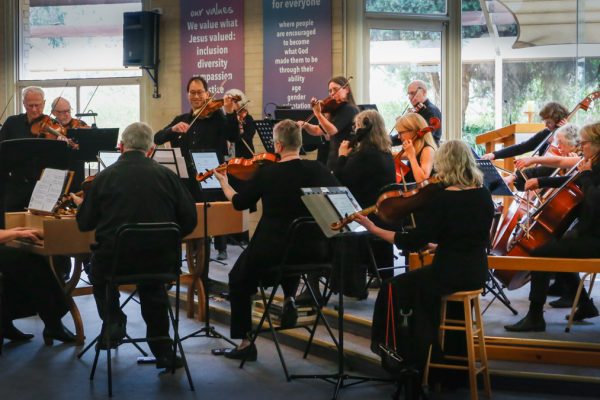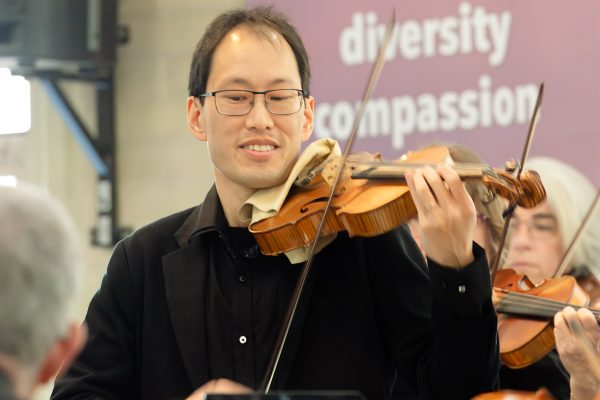
Music / “An Afternoon of Baroque”, Musica Da Camera String Orchestra, musical director, John Ma. At Holy Covenant Anglican Church, Cook, November 4. Reviewed by LEN POWER.
IN Musica Da Camera String Orchestra’s latest concert, musical director John Ma promised a program that would defy expectations.
“An Afternoon of Baroque” was full of musical surprises from the baroque era with works by several unfamiliar composers as well as some works with unusual elements by well-known composers such as Telemann and De Mondonville.
The program commenced with “Suite No.1 in C major” “Le Journal du Printemps” by Johann KF Fischer, a German baroque composer whose music was strongly influenced by the French Baroque style. The suite was in six parts, with the first part, the grand-sounding overture, played confidently and well by the orchestra, led by John Ma on violin. The third part, “Air des Combattans”, was highly dramatic and colourful and the final chaconne was also nicely played.
Another relatively unknown composer, Englishman William Boyce, was next with his “Symphony No. 2 in A major”. This was a nicely distinctive work with the second part, vivace, especially well-played by the orchestra.

Georg Telemann’s “Violin Concerto in A major ‘Die Relinge’” had an unexpected section in the first movement with loud repeated notes that summoned images of dramatic and sudden downpours of rain. The orchestra played this with gusto and, after a dreamlike adagio, played the third part, a sedate Minuet with pleasing precision.
Unusually, a female composer from the baroque era, Leonora Duarte, published a set of seven sinfonias at the end of the 17th century. The orchestra played the second of these, “Sinfonia No. 2”. This ethereal work, full of restrained emotions, was sensitively played.
Heinrich von Biber’s “Battaglia” was next on the program. This highly atmospheric work depicted various aspects of battle – the dissolute musketeers, the fight itself, Mars, God of War and the lament of the wounded. The second movement was an extraordinary cacophony of drunken, dissolute sounds, played by various members of the orchestra with a great sense of fun. The “battle” movement was fiery and dramatic and the lament movement was played with great feeling.
The concert ended with a “Pastiche Symphony” of three movements from works, chosen by John Ma, by composers, Michel Corrette, Jean-Joseph de Mondonville and Telemann. The dramatic and colourful movement by Corrette, a melodic, reflective second movement by de Mondonville and a lively, grand finale by Telemann was an enjoyable final journey through the baroque era to end this entertaining concert.
Who can be trusted?
In a world of spin and confusion, there’s never been a more important time to support independent journalism in Canberra.
If you trust our work online and want to enforce the power of independent voices, I invite you to make a small contribution.
Every dollar of support is invested back into our journalism to help keep citynews.com.au strong and free.
Thank you,
Ian Meikle, editor








Leave a Reply